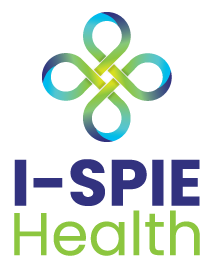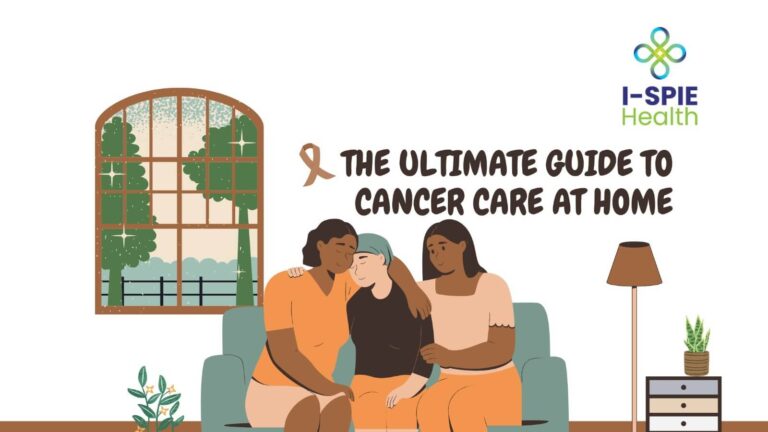Cancer treatment has advanced significantly over the years, offering patients various options to fight the disease. Some, such as surgery and radiation therapy, are considered to be local treatments, whereas treatments such as immunotherapy and chemotherapy.
Targeted cancer therapy is also considered to be “systemic” treatment. Understanding the different treatment options can help patients make informed decisions about their care. This guide will explore Immunotherapy vs Chemotherapy, how they work, their uses and benefits, and comparison.
What is Immunotherapy?
Immunotherapy is a type of cancer treatment that harnesses the body’s immune system to fight cancer. It involves stimulating the immune system to recognize and destroy cancer cells more effectively.
How it Works
Immunotherapy works by enhancing the immune system’s natural ability to detect and eliminate cancer cells. It can involve various approaches:
- Checkpoint Inhibitors: Also known as ICI (Immune Checkpoint Inhibitors), are drugs that block proteins that prevent the immune system from attacking cancer cells.
- CAR-T Cell Therapy: This treatment involves modifying a patient’s T-lymphocytes (a type of white blood cell) to recognize better and attack cancer cells.
- Cancer Vaccines: The purpose of cancer vaccines is to boost the immune system’s response to cancer cells.
Immunotherapy Used For
Immunotherapy is used for several types of cancer, including:
- Melanoma
- Non-small cell lung cancer
- Kidney cancer
- Bladder cancer
- Head and neck cancers
- Certain types of lymphoma and leukemia
Benefits of Immunotherapy
- Targeted Approach: Immunotherapy specifically targets cancer cells utilizing the body’s own immune system, causing fewer side effects.
- Long-lasting Effects: Immunotherapy engages the immune system to recognize cancer cells, which can thus continue to attack them long after treatment ends.
- Synergy with Other Treatments: When combined with other treatments like chemotherapy and radiation, immunotherapy can enhance effectiveness and thus reduce the risk of cancer recurrence.
What is Chemotherapy?
Chemotherapy is a traditional cancer treatment that uses strong chemicals to kill rapidly dividing cells, including cancer cells. It is one of the most common treatments for cancer.
How it Works
Chemotherapy works by targeting and killing fast-growing cells. This includes not only cancer cells but also other rapidly dividing cells in the body, such as those in the hair follicles and digestive tract.
Indications for Chemotherapy Use:
Chemotherapy is used in multiple settings for a wide range of cancers, such as breast, lung, colorectal, leukemia & lymphoma.
It is used in the following settings:
- Primary Treatment: Chemotherapy can be used as the primary or sole treatment for cancer, with the goal being to cure the disease.
- Adjuvant Therapy: Following other treatments, such as surgery, chemotherapy kills any residual disease.
- Neoadjuvant Therapy: Before receiving surgery, chemotherapy can help shrink the tumor size to make it more effective.
- Recurrent or Metastatic Disease: Chemotherapy can reduce tumor size and reduce symptoms to improve quality of life.
Benefits of Chemotherapy
- Broad Applicability: Effective for many different types of cancer.
- Combination Potential: Often used in combination with surgery, radiation, and immunotherapy to improve outcomes.
- Established Efficacy: Decades of use have proven its effectiveness in shrinking tumors and killing cancer cells.
Read More: Early Stage Prostate Cancer Treatment
Immunotherapy vs. Chemotherapy: Understanding Their Rise and Roles
Chemotherapy remains a cornerstone of cancer treatment due to its broad applicability and decades of proven effectiveness. Since its approval, Immunotherapy has surged in use because of its potential for long-lasting benefits utilizing the body’s immune system to fight cancer. The choice between immunotherapy and chemotherapy often depends on the specific type of cancer, the stage of the disease, and individual patient factors, including overall health and treatment goals.
Immunotherapy vs Chemotherapy: Similarities & Differences
How They Work
Immunotherapy acts on the immune system and teaches healthy cells to recognize cancer cells and thereby stop their growth. It has potentially fewer side effects.
Chemotherapy works by preventing cells from dividing and growing. They are broadly effective but can cause significant side effects due to its non-specific targeting of rapidly dividing cells.
Treatment Duration & Frequency
Immunotherapy may take longer to take effect, but it is capable of working for an extended period, as the immune system is able to “remember” what kinds of cancer cells to look out for.
Chemotherapy works by killing actively dividing cells and will thus work for only as long as the drugs are within the body. It has to be given in cycles to continue receiving the benefits.
Success Rates
Immunotherapy offers durable responses, as it is more targeted and can be highly successful in specific cancers, such as melanoma, renal cell carcinoma, and squamous cell carcinoma.
Chemotherapy is often effective initially, especially when combined with other treatments. It has also proven effective in many cancers.
Patient Eligibility
Immunotherapy is best suited for patients with specific biomarkers and cancers that carry a high mutation load. Chemotherapy is best suited for patients with cancers that are rapidly growing or have spread to distant sites. It is generally applicable to a wider range of cancers and patients.
Financial Considerations
Immunotherapy is often more expensive due to its advanced technology and specialized nature. Chemotherapy is generally more affordable, but costs can still be high depending on the drugs and regimen used.
The Detailed Comparison of Immunotherapy Vs Chemotherapy
|
Aspect |
Immunotherapy |
Chemotherapy |
| Mechanism of Action | It enhances the immune system to target and destroy cancer cells. | It uses drugs to kill rapidly dividing cells, including cancer cells. |
| Types | Checkpoint inhibitors, CAR-T cell therapy, cancer vaccines. | Various chemotherapy drugs (alkylating agents, antimetabolites, etc.). |
| Cancer Types Treated | Melanoma, non-small cell lung cancer, kidney cancer, bladder cancer, head and neck cancers, certain lymphomas, and leukemias. | Breast cancer, lung cancer, colorectal cancer, ovarian cancer, leukemia, lymphoma. |
| Targeting | Highly targeted, fewer effects on healthy cells. | Broad-spectrum affects both cancerous and healthy cells. |
| Treatment Duration | Longer duration, less frequent treatments. | Typically given in cycles with more frequent treatments over a shorter period. |
| Side Effects | Autoimmune reactions, fatigue, flu-like symptoms. | Hair loss, nausea, vomiting, immunosuppression, fatigue. |
| Effectiveness | Highly effective for specific cancers; long-lasting effects. | Broadly effective; proven track record in many cancers. |
| Cost | Generally more expensive due to advanced technology. | Generally more affordable but varies with drug and regimen. |
| Patient Eligibility | Suitable for patients with specific biomarkers and certain cancer types. | Applicable to a wide range of cancers and patients. |
| Success Rates | High success rates in certain cancers like melanoma and lung cancer. | Proven effectiveness in many cancers, often used in combination with other treatments. |
| Combination Therapy | Often combined with chemotherapy or other treatments for enhanced effectiveness. | Commonly combined with surgery and radiation to improve outcomes. |
| Treatment Goals | Long-term control has the potential for fewer side effects. | Rapid tumor shrinkage, broad applicability. |
| Consultation Needed | Discuss suitability with an oncologist based on biomarkers and cancer type. | Discuss with an oncologist for a regimen tailored to cancer type and patient health. |
Chemoimmunotherapy- What is it?
The combination of chemotherapy & Immunotherapy aims to increase the efficacy of cancer treatment by targeting rapidly dividing cells and utilizing the body’s immune system to fight the cancer. This approach can enhance the overall effectiveness of treatment, especially in cancers that respond to both therapies. Combining treatments may allow for lower doses of chemotherapy, reducing side effects while maintaining efficacy.
When to Choose Which: Immunotherapy Vs Chemotherapy
The choice between immunotherapy and chemotherapy depends on several factors:
- Type and Stage of Cancer: Some cancers respond better to immunotherapy, while others are more effectively treated with chemotherapy. Similarly, the stage of cancer and aggressiveness of the disease are additional factors as well.
- Patient Health: Overall health and preexisting and existing conditions can influence the choice of treatment.
- Biomarkers: The presence of specific biomarkers can make a patient more suitable for immunotherapy.
- Treatment Goals: Whether the goal is to cure, control, or relieve symptoms will affect the choice of therapy.
Choosing Between Immunotherapy and Chemotherapy?
Confused about which cancer treatment is right for you? Get expert guidance tailored to your unique needs.
Let’s Get a Free Consultation Today!
Conclusion
Both immunotherapy And chemotherapy are valuable tools in the fight against cancer. Understanding their benefits and the differences between them helps in making informed decisions about treatment options. It is essential to discuss with healthcare providers to determine the best course of action based on individual circumstances.
FAQ
Which is better, chemo or immunotherapy?
It depends on the type of cancer, stage, and individual patient factors. Immunotherapy can offer fewer side effects and long-term control for specific cancers, while chemotherapy is broadly effective and has a proven track record for many types of cancer.
Can chemotherapy and immunotherapy be used together?
Yes, in some cases, chemotherapy and immunotherapy are used together to enhance the overall effectiveness of cancer treatment. This combination can help in reducing tumor size and improving the immune system’s ability to fight cancer.
Is one treatment more effective than the other for advanced-stage cancer?
The effectiveness of chemotherapy versus immunotherapy for advanced-stage cancer depends on the cancer type and individual patient factors. In some advanced cancers, immunotherapy has shown promising results and can offer long-term remission, while chemotherapy remains crucial for others where it effectively controls tumor growth and spread.
How do the treatment durations of chemotherapy and immunotherapy compare?
Chemotherapy treatments typically involve cycles over a few months, with rest periods in between to allow the body to recover. Immunotherapy can also be given in cycles but often continues for a longer duration, sometimes lasting years, depending on the cancer type and response to treatment.







2 Comments